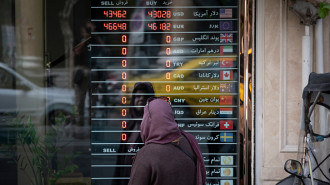Lebanon to take steps to fix finance sector shortfalls
Lebanon will work over the next year to address deficiencies in policing corruption identified by a financial crime watchdog, the country's financial intelligence unit said on Friday.
The Special Investigation Commission said in a statement it "discussed and adopted" an evaluation report by the Middle East and North Africa Financial Action Task Force (MENAFATF) during the body's plenary this week in Bahrain.
The evaluation is a crucial step towards regaining or further degrading trust in Lebanon's financial system, which has been in a tailspin since 2019. Its authorities are struggling to implement reforms to secure a deal with the International Monetary Fund for a bailout.
The report will be published in June, the commission said, without noting any amendments to the draft.
A draft seen by Reuters showed Lebanon scored as only partially compliant in several categories, including anti-money laundering measures, transparency on beneficial ownership of firms and mutual legal assistance in asset freezing and confiscation.
The cumulative score put Lebanon "one mark over the threshold to be grey-listed," said a diplomatic source.
The commission did not respond to requests for comment.
Its statement cited "recent uninformed statements and analysis that Lebanon may be listed on the 'grey list' this week'."
"Lebanon will have to take corrective measures to address the identified deficiencies and submit to MENAFATF a progress report during 2024," it added.
Being on the grey list could disrupt a country's capital flows, the IMF found in a 2021 paper, with banks possibly ending relationships with customers in high-risk countries to reduce compliance costs.
Other risks include reputational damage, credit ratings adjustments, trouble obtaining global finance and higher transaction costs.
Lebanon's financial crisis has severely restricted banking transactions and many corresponding institutions have cut their ties to the country. It has made little progress on reforms required by the IMF, and its central bank governor has been charged by France in a financial fraud case, triggering an Interpol red notice.
(Reuters)



